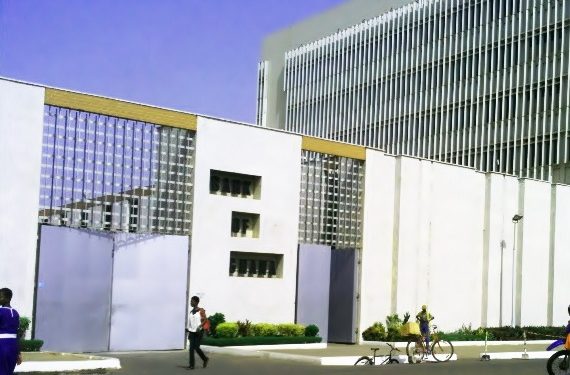Central banks in five of eight major African nations will likely hold interest rates in the next two weeks to shore up their sickly economies, even as inflation pressures build.
Surging food and fuel prices from the war in Ukraine, renewed virus lockdowns in China and the US unwinding coronavirus stimulus have clouded the outlook for the continent’s post-Covid recovery. African policy makers will also need to consider portfolio outflows and exchange-rate weakness in emerging markets when they deliberate on interest-rate decisions this month.
Countries like Kenya, Zambia and Angola where inflation is slowing or within target may leave rates unchanged to help support economic growth. Others — such as South Africa — that are more connected with global markets through asset flows and commodity prices are likely to hike, according to Tatonga Rusike, sub-Saharan Africa economist at Bank of America.
Here’s what central bankers in Africa may do:
Zambia, May 18
Policy rate: 9%
Inflation rate: 11.5% (April)
Inflation target: 6%-8%
Zambia will likely hold its key rate with inflation at a two-and-a-half year-low
Policy makers at the Bank of Zambia have been focused on driving inflation back to within target by next year. With the gauge slowing for a ninth straight month in April to a two-and-a-half year-low, the monetary policy committee will probably stand pat, said Trevor Hambayi, a Lusaka-based independent economist. That will support the economy’s recovery and may boost the kwacha, which has strengthened 4.5% against the dollar since April, helping to offset price pressures from rising gasoline and wheat costs.
The MPC will probably keep borrowing costs on hold until Africa’s second-largest copper producer secures a bailout from the International Monetary Fund allowing it to drive its economic agenda, which would require increased liquidity and open the door for a rate cut, Hambayi said.
Egypt, May 19
Deposit rate: 9.25%
Inflation rate: 13.1% (April)
Inflation target: 7% +/- 2 ppt
Annual inflation in Egypt surged in April, fueled by soaring food prices
After Egypt hiked its key interest rate for the first time in five years in March, more may be on the cards as the North African nation faces a spike in consumer prices and a hawkish US Federal Reserve affects capital flows.
Annual inflation hit its highest level in almost three years in April as food costs soared by about a quarter. That meant both Egypt’s policy rates turned negative, when adjusted for prices, for the first time since 2018, undercutting a high differential that had made the country a favorite for overseas portfolio investors.
To contain inflation and compete with other emerging markets, Egypt’s central bank may raise rates by as much as 200 basis points this month, said Radwa El-Swaify, head of research at Cairo-based Al Ahly Pharos. “Global monetary tightening is a crucial factor in this decision,” she said.
South Africa, May 19
Repurchase rate: 4.25%
Inflation rate: 5.9% (March)
Inflation target: 3%-6%
South Africa’s central bank will raise its benchmark interest rate this week. The only question is “by how much?”
While the South African Reserve Bank lifted the key rate by 25 basis points in each of its last three meetings, two out of five MPC members voted for a bigger, half-point hike in March. Now, more of the panelists may agree to up the pace of tightening due to inflation that’s set to temporarily breach the ceiling of Reserve Bank’s target, a weaker currency, and a more hawkish US Federal Reserve and European Central Bank.
“Our view has changed and we now see a 50 basis point hike in May,” said Mpho Molopyane, an economist at FirstRand Group Ltd.’s Rand Merchant Bank. Capital outflows and heightened rand weakness since the Fed’s upward move are also among the factors that will influence decision-making, she said.
Of the 20 economists in a Bloomberg survey, five predict an 25 basis point increase, with the rest expecting a half-percentage-point hike.
Ghana, May 23
Policy rate: 17%
Inflation rate: 23.6% (April)
Inflation target: 8% +/- 2 ppts
Ghana’s monetary authority will face a tough choice: support economic growth or tame runaway inflation. The decision even has economists split.
Absa Group Ltd. analysts Ridle Markus and Samantha Singh expect the central bank to raise the benchmark interest rate by 200 basis points as they forecast inflation to exceed the MPC’s estimates after accelerating at a faster than anticipated pace in March and April.







